It’s one of those technicolor summer days New Englanders wait for all year, and the fields of Greenfield Community Farm in Greenfield, Massachusetts, are full of local students, staff and community volunteers. This is a Community Supported Agriculture (CSA) farm, providing farm-fresh vegetables to roughly three hundred residents of Franklin County.
In a part of the country where sustainable agriculture commands a competitive marketplace, this farm stands out. It is part of a larger organization, Just Roots, whose mission is to provide healthy, local food by connecting people, land, resources, and know-how. The CSA provides over sixty percent of their shares to low-income residents, making them the largest SNAP (Supplemental Nutrition Assistance Program, a program formerly known as food stamps) enrolled CSA in Massachusetts, and a model for food justice advocates across the nation.
I first pulled off the two-lane highway connecting my hometown of Boston to the rolling hills of Western Massachusetts the previous Saturday for the weekly CSA distribution inside the farm’s red barn. Down the hill, children wandered through the fields and community gardens as their parents picked peas and strawberries.
Meryl LaTronica pops out of a nearby greenhouse, cutting an almost cartoonish figure of a farmer: dirty jeans, strong, ruddy arms tattooed with a rainbow of vegetables held over her head as she hauls a basket of weeds, a dusty baseball hat shading her tanned face. A decade into farming, LaTronica’s enthusiasm for the people who eat her food hasn’t waned. On Saturday, she seems to be everywhere at once and nowhere at all, changing out baskets in the farmstand, moving irrigation to her thirsty fields, harvesting a few last-minute crops, and greeting members by name.
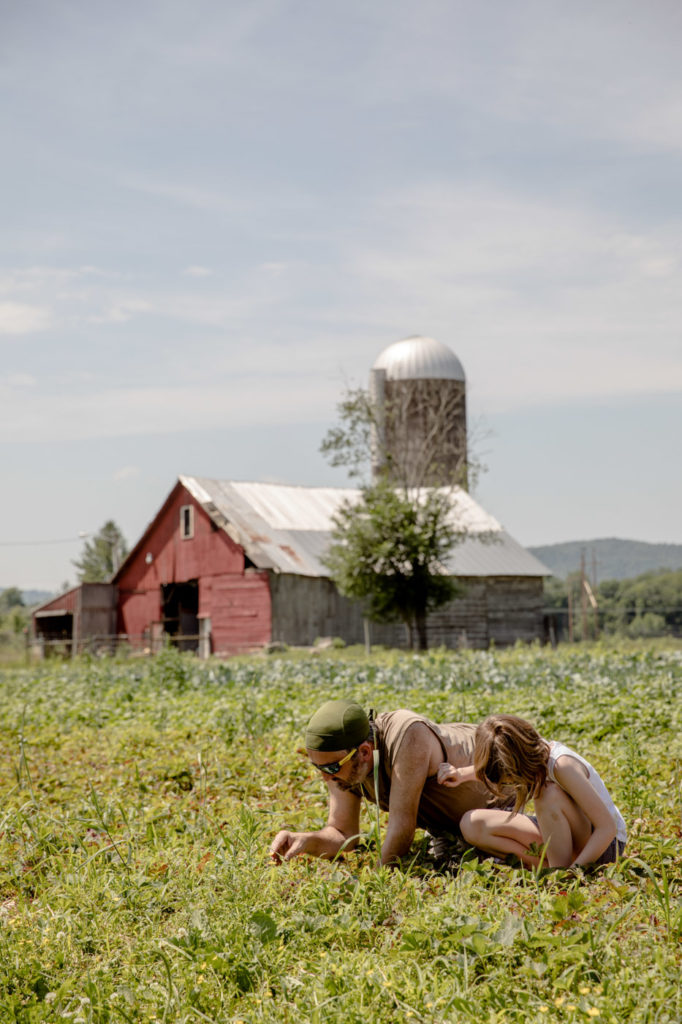

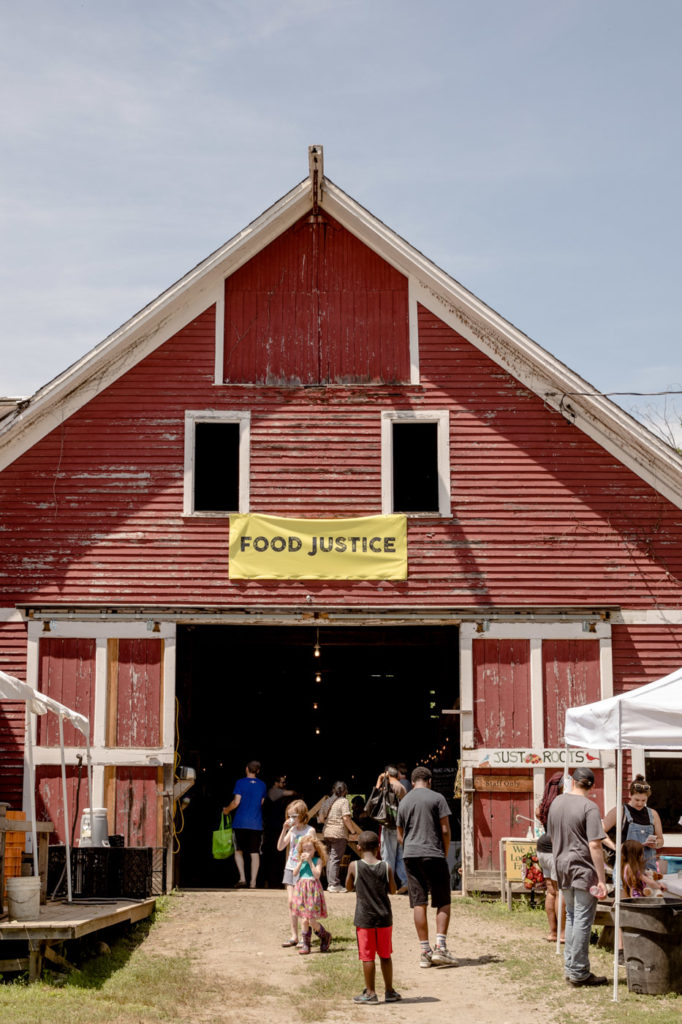

This is her second season in Greenfield. LaTronica lives next door to the farm in a barn-style apartment building with a swimming hole out back. It’s been a difficult transition for her to find a home in the tight-knit community of Franklin County. Despite ten years working the land, she grew up and lived most of her life in the metro-Boston area and is still learning about this rural community. Her previous farm—while also a non-profit—served a wildly different population in the privileged suburb of Dover. “I kind of went from the richest town in the state to one of the poorest.” LaTronica says, explaining her transition to Greenfield Community Farm. “That’s been interesting to witness—a shift from feeling like everything is abundant to feeling like there’s scarcity,” she says.
Franklin County—located in the northwest corner of Massachusetts—is one of the poorest in the state. Greenfield’s per capita income falls below the United States average. Despite being nearby many of the state’s esteemed private colleges, the town sees little economic benefit and has faced significant hardship as manufacturing has left the area. Additionally, the city has grappled with the opioid epidemic. Even on the farm, the damaging effects of addiction are noticeable in the members’ personal stories. However, Just Roots is one of several food-based organizations in the area contributing to creative pathways to recovery.
I spoke with Kaitlyn John, a CSA member, who first started working in the community garden at Just Roots six years ago as part of programming at the Recover Project, a local peer-based recovery organization. “It feels safe here,” she says, speaking of the community, staff and volunteers. “It feels like I belong here.”
Like most of the members, John pays for a large part of her share with SNAP benefits,. That means her visit includes an additional twenty minutes of paperwork on the folding table outside the barn with the support of a Just Roots staff member who completed some of the more technical parts of the form in advance. Conversations at Saturday’s distribution are a little more complicated than simply marking names on the member list. Amidst the convivial air, there are small spikes of tension when a staff member subtly checks in with members regarding missed payments and benefits enrollment. But there is also a celebration as she gives a cheerful update that Massachusetts’ Healthy Incentives Program (HIP) has been renewed for another year, meaning members who pay with SNAP can get a large portion of the cost of their share credited back to their account.
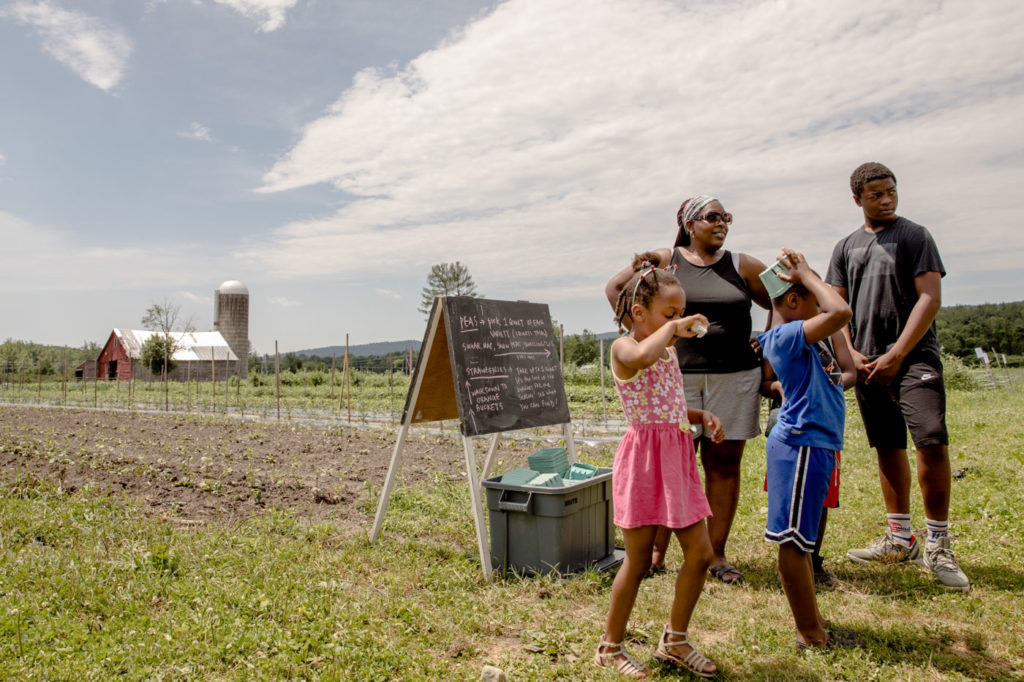
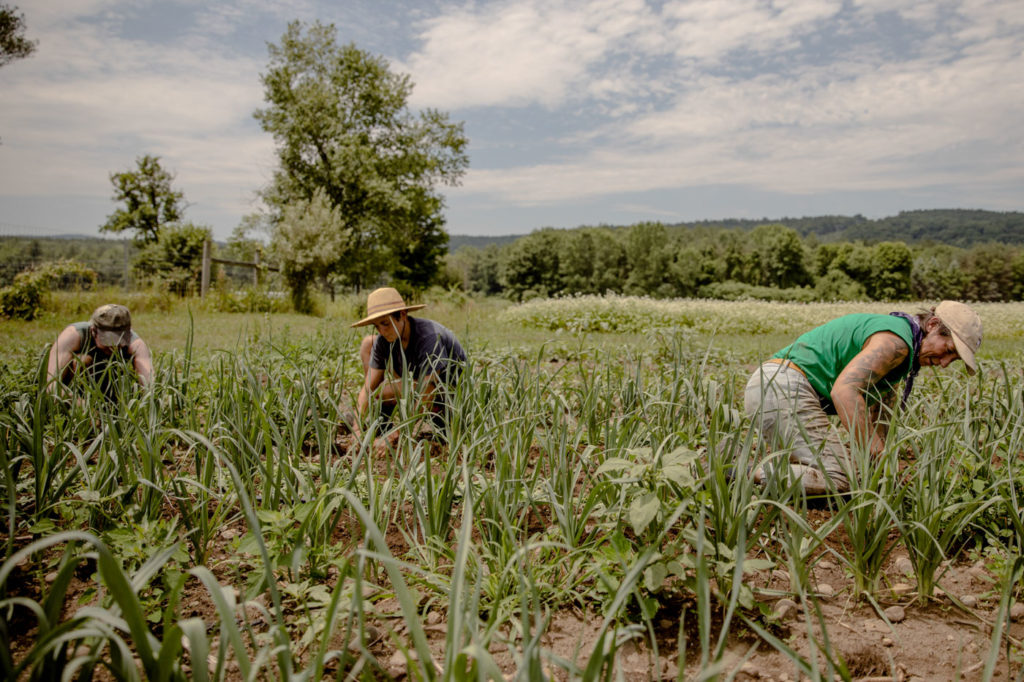
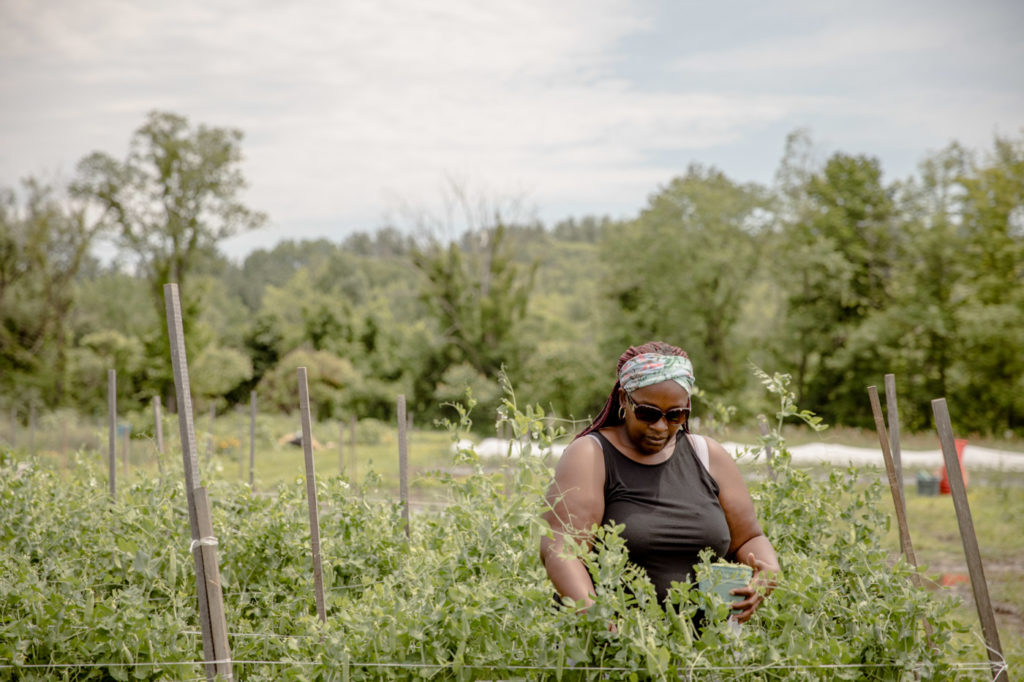


After most members had left and work were wrapping up for the day, I sat with LaTronica under the shade of a large tree in her front yard. We discussed the difference between her members now and at her previous farm. “I think that edge of poverty feels really present in people’s everyday,” she tells me. LaTronica says her conversations with members of Just Roots are much more sensitive than the typical small talk she is used to. It is not unusual that members have to delay payments, and sometimes they approach her because they cannot pay for their food at all.
One of the tenants of Community Supported Agriculture is members pay dues at the beginning of the season, which offers farmers much needed start-up capital to plan, pay staff, and order supplies in the dark winter months when there is no produce to sell. Members have the option to pay in monthly or weekly installments for their shares. Additionally, “there are just shares we never get paid for,” LaTronica sighs. “It’s hard for us to absorb that given our limited resources. We make it work.” Each year, they have to build into their budget a percentage of food they know they will give out for free.
This trade-off is simply a part of what makes Just Roots work. They want to live their motto that their model isn’t farm-to-table, but “Farm to Everyone’s Table.” That means Greenfield Community Farm serves everyone. LaTronica, a proud queer farmer, explains they are “really trying to make those overt, intentional choices” that allow people of all walks to feel welcome.
The organization is finalizing funding for a mobile market in Greenfield’s low-income housing projects, working in partnership with its residents. They bring their CSA distribution into downtown Greenfield once a week for those who can’t make it out to the farm.
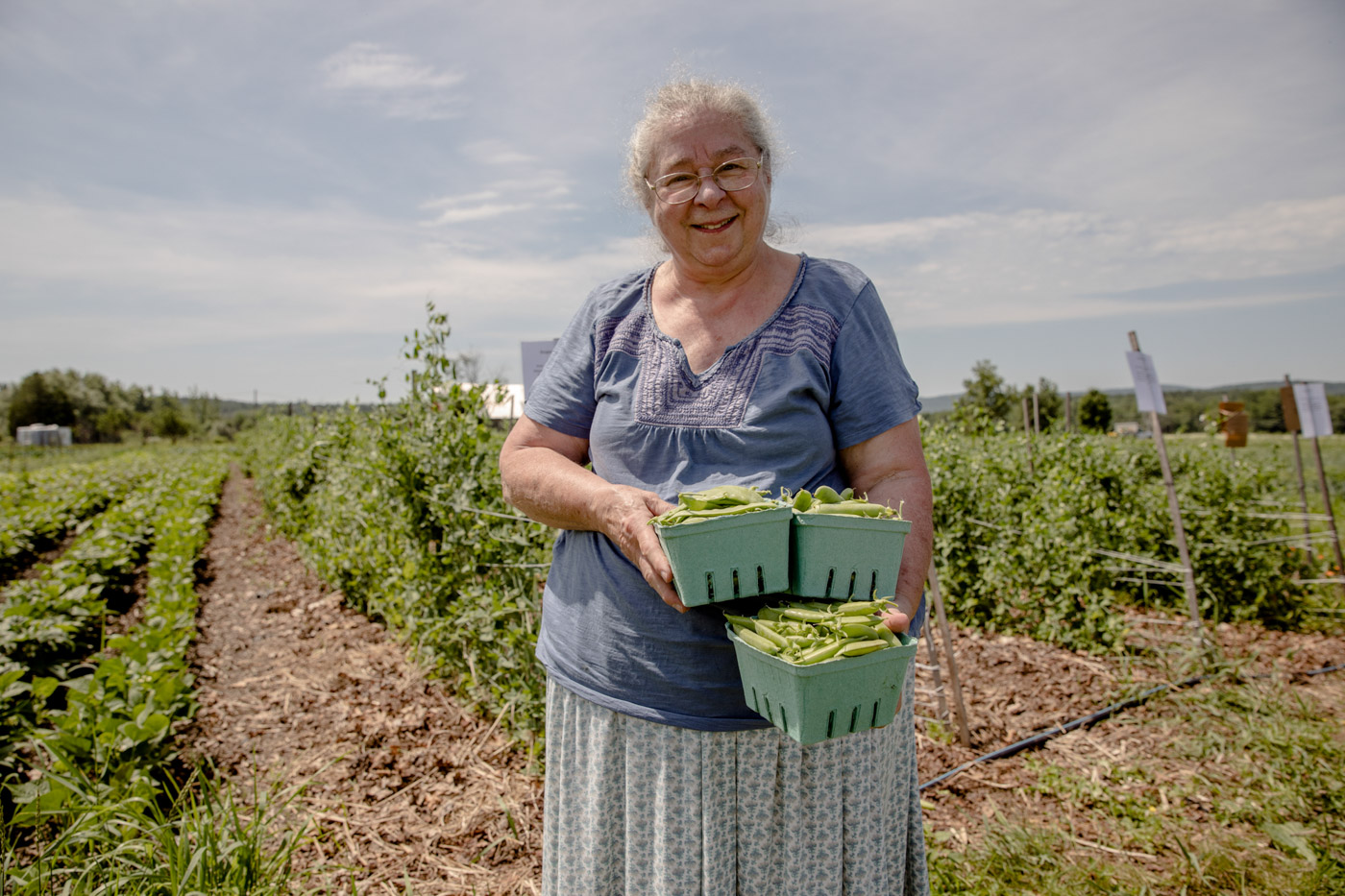
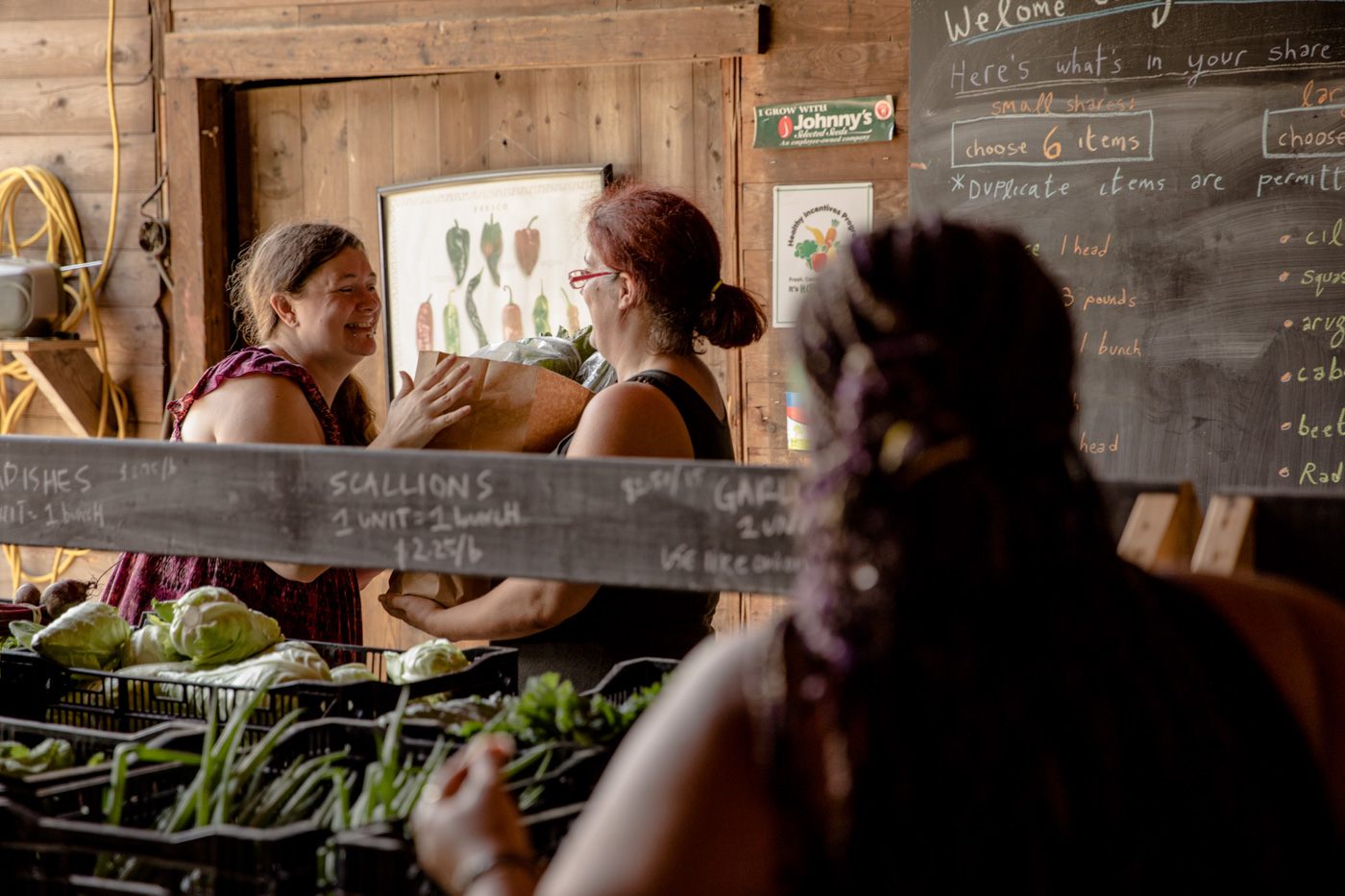
At 12:30 p.m. on the dot, volunteers stop weeding. The sun sits heavy in the sky, and the crew wanders up from the fields to sit under those same trees LaTronica and I chatted beneath the weekend before. Volunteer days at Just Roots always wrap up with a “Feastaval”—a community potluck lunch open to all. As a few staff members pull tupperware out of the office fridge, a volunteer pops over to the garden and grabs a few edible flowers to top a huge salad, and a visiting family pulls out a loaf of local bread alongside homemade pesto. The table fills with food seemingly out of nowhere, and the group looks proudly at their collective work once again before settling down for a hard-earned meal, making room to ensure everyone has a seat at the table.





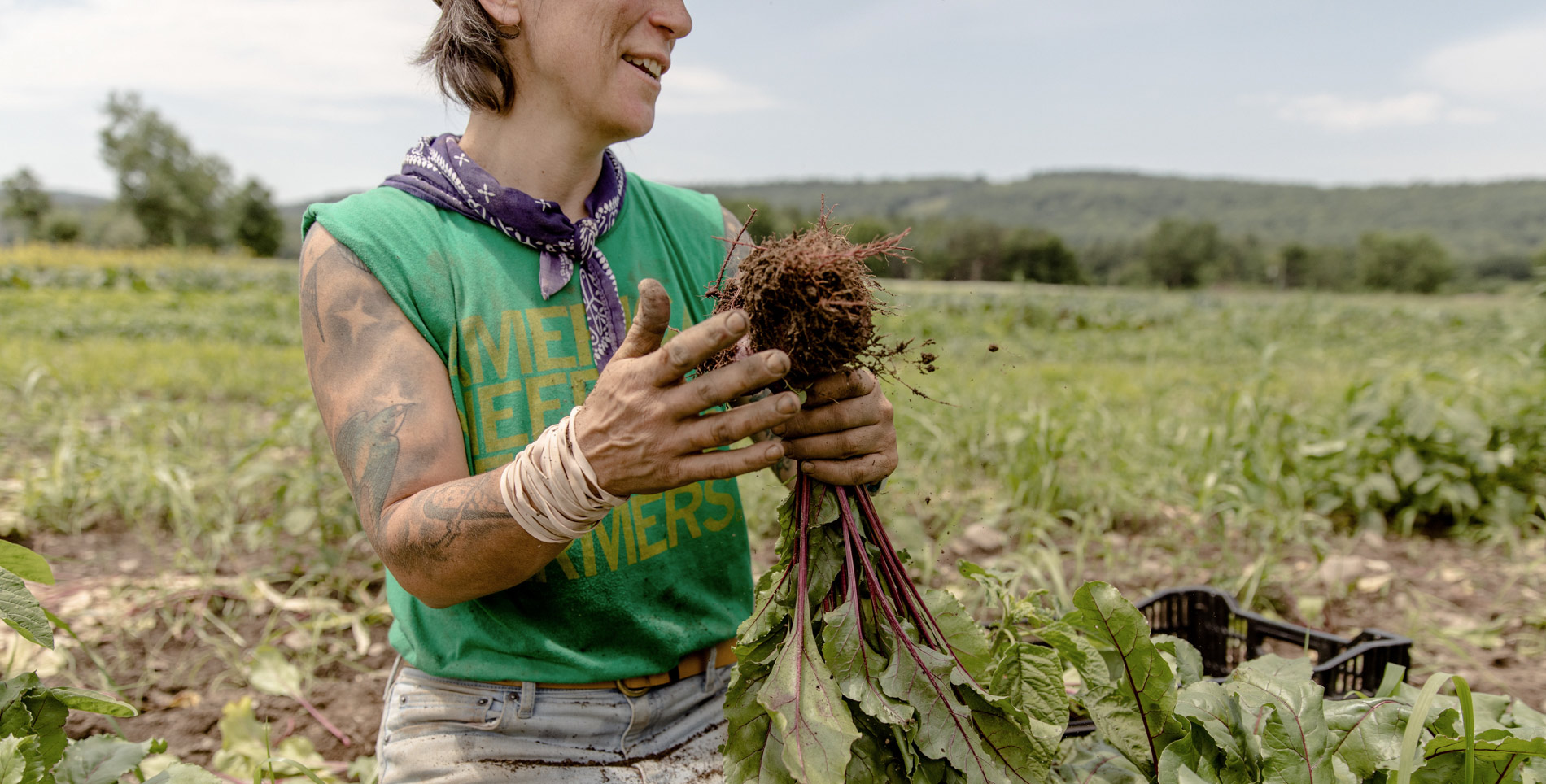

Our comments section is for members only.
Join today to gain exclusive access.